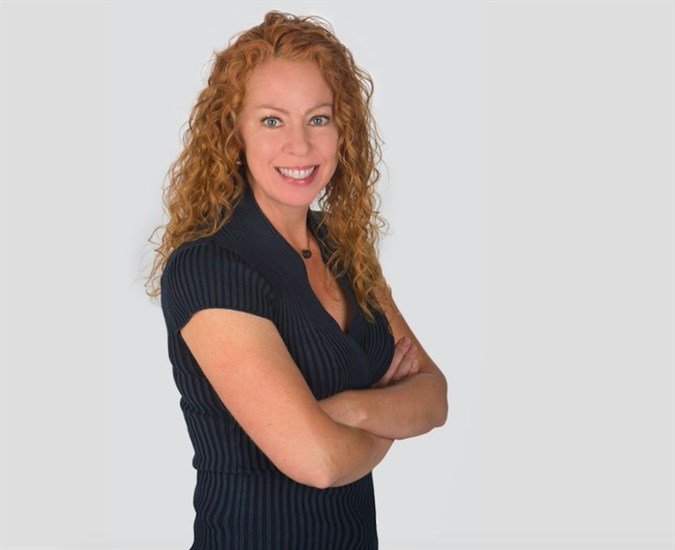
Gaelene Askeland is Executive Director of the Central Okanagan Journey Home.
Image Credit: Submitted by Journey Home Transition team
April 15, 2019 - 5:30 PM
KELOWNA - Supportive housing may work for the vast majority of Kelowna’s homeless but getting the most severely “broken” people off the streets and out of shelters may require the extreme measure of creating a new kind of mental institution.
That’s one of the things Gaelene Askeland is starting to lobby for in her drive to get Kelowna to "functionally zero" homelessness.
Askeland is the Executive Director of the Central Okanagan Journey Home Society. She made her comments during an update for Kelowna City Council today – which was more a briefing on Fetal Alcohol Syndrome and severe personality disorders.
“These are the hardest people to deal with,” she told council. “Being in a shelter or outside is not the place to be when you have all that chaos in your head.”
It’s estimated four per cent of the population suffers from Fetal Alcohol Syndrome to some extent, she said. In Kelowna that’s about 5,000 people. But, it’s the 50 to 70 with severe symptoms or personality disorders that are homeless and causing much of the visible acting-out behaviors on city streets.
“They have an inability to regulate their emotions,” she said. “They know they are broken and looked on as the dregs of society.”
Some people need intensive support in order to be housed and function to some level in society. They may never be able to hold down full-time jobs or go to school but can live in secure housing rather than in shelters or on the streets.
Askeland gave the example of a woman who had been kicked out of all facilities in both Penticton and Kelowna. The John Howard Society got her into a “Professional Neighbour Program” where she has a suite in home with skilled people to help out.
That’s expensive but, before getting the help, the woman was triggering 40 to 50 calls a month to police – often calling them because of paranoid delusions. That’s down to two calls in four years, generating quite a savings in police costs.
Askeland said there are only a few dozen people in all of B.C. who are so severely damaged that they would need to be institutionalized, at least for awhile.
She gave an extreme example of what happens when people can't get help. She talked about a 23-year-old man with Fetal Alcohol Syndrome who was sexually and physically abused as a child.
“When he’s clean and sober, which doesn’t happen very often, he has a nice personality,” Askeland told council.
He was evicted from supportive housing after making death threats to other residents. He’s smashed windows and smeared feces on walls.
“Our society broke him,” she told council. “He didn’t do anything to break himself. If we’re not going to be a society that is going to euthanize those types of people, we have to figure out how we’re going to house them safely, in our community.”
The man has stayed in shelters but often gets kicked out for being disruptive. He will be allowed back in a few days later because workers know he will die on the streets if they don’t help.
Or, people like him may be sent to jail. But that does nothing to change their condition so they’ll do the same kinds of things when they get out.
For the last three years, Kelowna has had something called the Assertive Community Treatment team that deals with about 75 people with serious mental illnesses and addiction issues. That needs to be expanded to handle another 75 to 100 cases.
But its mandate does not include people with Fetal Alcohol Syndrome or personality disorders.
“No one wants to fund that,” she said.
So Askeland is lobbying both for an expansion of the treatment team and a change in mandate so they can deal with other types of cases.
Journey Home has the goal of getting 300 supportive housing units built within five years. It’s well ahead of that target, with B.C. Housing promising 236 spaces by this time next year.
But that won’t help the small number of people with the most severe disorders who represent the most disturbing view of the homeless.
Askeland also told council there will always be a need for emergency shelters in Kelowna – but they should be for short-term stays, giving the example of someone diagnosed with cancer, needing chemotherapy and no longer being able to work or pay rent.
Those people need to get help and support right away so they have a safer, more secure place to live, she said.
“I have a renewed sense of optimism that we’re doing the right thing,” Mayor Colin Basran said near the end of the almost two-hour discussion.
He noted that council needs to get to work right away on developing a strategy to lobby the provincial and federal governments to fund the kinds of initiatives Askeland is suggesting.
To contact a reporter for this story, email Rob Munro or call 250-808-0143 or email the editor. You can also submit photos, videos or news tips to the newsroom and be entered to win a monthly prize draw.
We welcome your comments and opinions on our stories but play nice. We won't censor or delete comments unless they contain off-topic statements or links, unnecessary vulgarity, false facts, spam or obviously fake profiles. If you have any concerns about what you see in comments, email the editor in the link above.
News from © iNFOnews, 2019